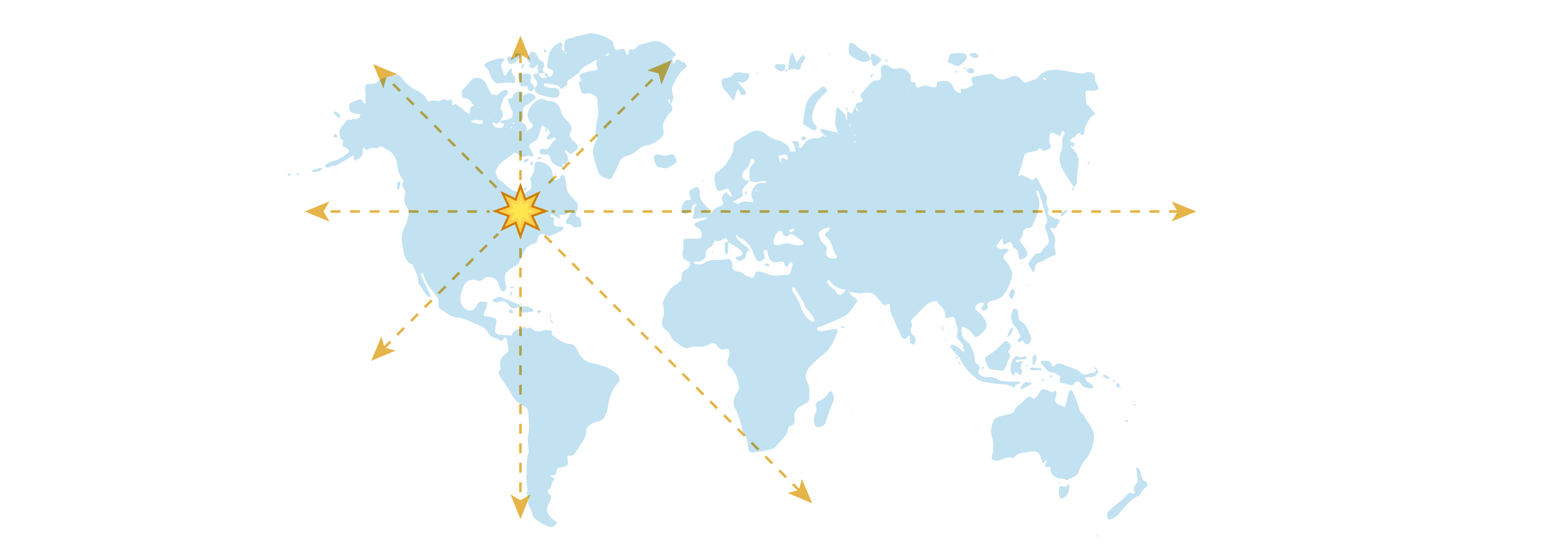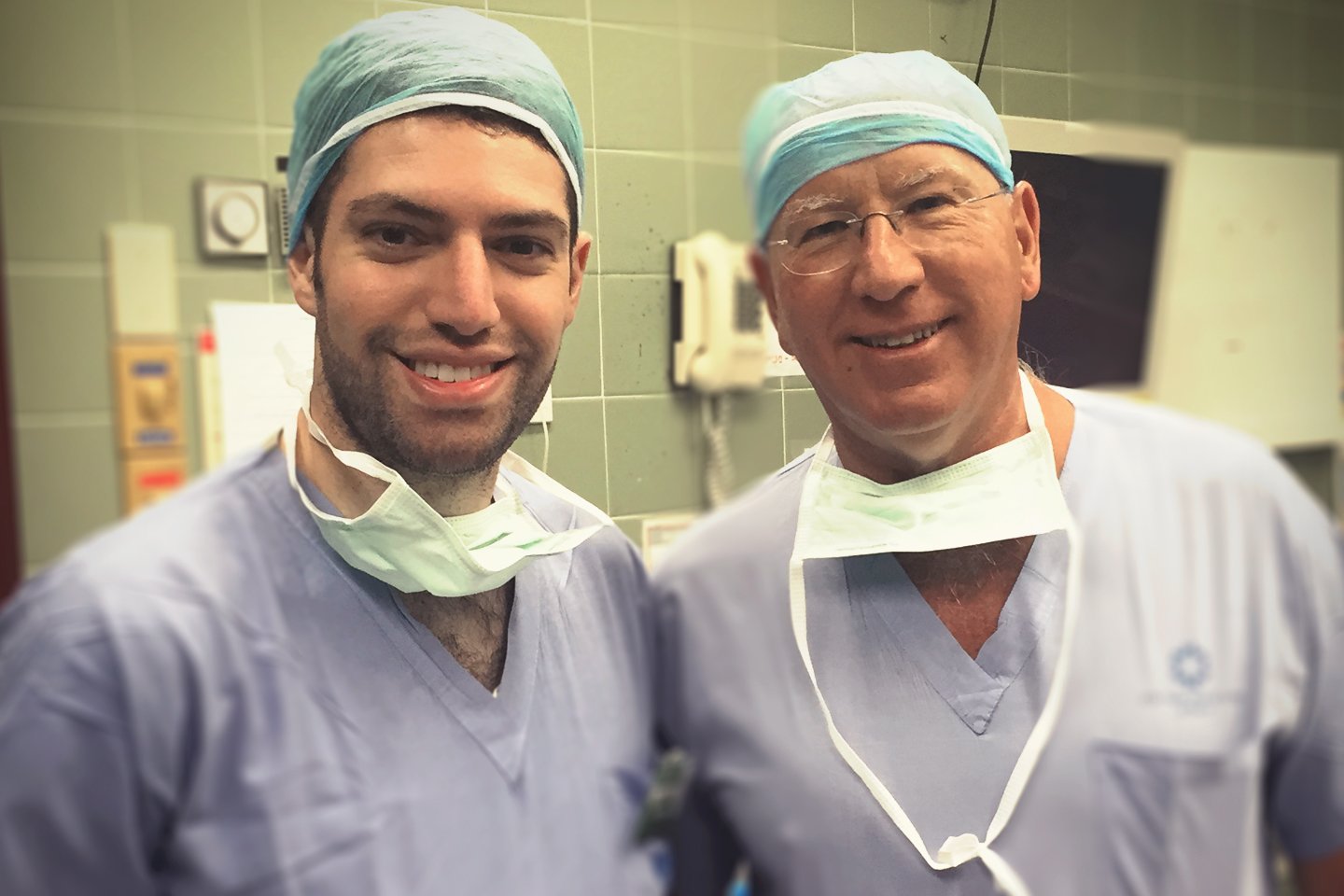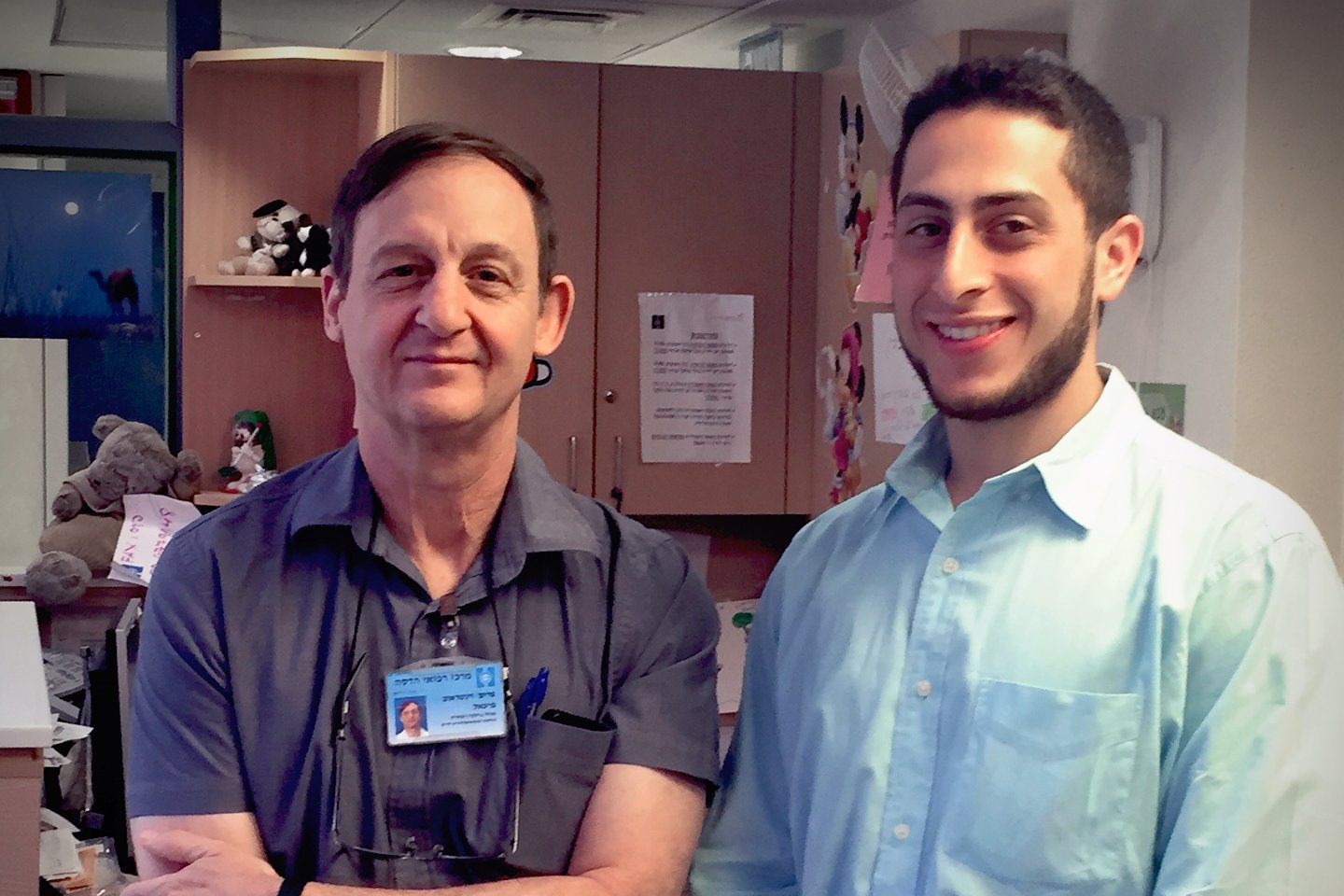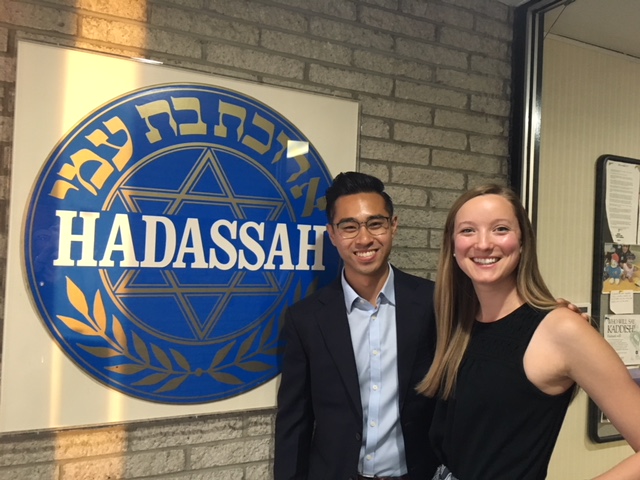
Global Health Initiatives
Engaging in global health experiences not only cultivates a profound understanding of international health issues but also exposes students to diverse cultures, languages, and alternative healthcare systems.
OUWB has developed a robust global initiative, uniting curriculum, co-curricular activities, and community involvement. Our goal is to foster diverse opportunities, spark interest, and promote active engagement in global health at all levels: local, national, and international. OUWB is fully committed to offering students who are interested in these experiences an educationally enriching opportunity within a secure and well-structured environment.
Preparing for a Global Experience
A Question-based Guide to Planning for OUWB Students
This guide is adapted from the AAMC Guide developed by Elizabeth Barreras Rivest. This modification of Ms. Barreras Rivest’s document is specific for OUWB students and our Global Health Initiative.
General Questions
- What do I hope to accomplish through this global experience? Is this realistic?
- What added value do I bring to the experience and the community where I will be working?
- What impact can I have on the community/institution at this point in my medical education?
- How much time can I spend on a global experience?
- Is this the best time for me to go global? Will I have greater impact at a later time in my education and medical career?
Finances
- How much will this experience cost?
- Can OUWB support any or all of this experience?
- Are there scholarship opportunities to support this experience?
- Am I permitted to start a Go Fund Me effort for this experience?
- Will any financial support for this experience be deducted from my tuition and housing scholarships and loans?
Process
- What program is best for me at this point in my education as a physician?
- Can I be part of an existing program or research project through OUWB?
- Do I have language competency for the host country? Are interpreters provided and available daily?
- Does the host institution/organization provide a medical director and a mentor/supervisor for students?
- What are medical students permitted to do (without a medical license) in the host country?
- Does the host country require a special visa for medical student volunteers? Exchange students?
Statement on Use of Photography During Global Experiences/Activities
HIPPA and compliance to the HIPPA law is distinct to the United States. Although host institutions, organizations and community clinics do not or may not have confidentiality rules, when engaged in global activities, all OUWB students, faculty and staff remain professionally obligated to continue to abide by the:
- Beaumont HIPPA Compliance Policy
- Confidentiality and Computer Usage Policy
- OUWB Code of Professional Conduct for Global Experiences & Guidance on Ethical Behavior for Global Experiences
In addition, engaging in photography of patients without explicit consent is a privacy violation. Photographing patients and displaying their images for personal or professional purposes is strictly guided by confidentiality policies. OUWB expects all students, faculty and staff who are globally engaged to respect patient privacy in photography by complying with the guidance that:
The individual taking photos or videos is required to obtain verbal consent for images in any setting ether clinical or non clinical. Additionally, photos or videos taken in a clinical setting require that the patient is de identified (i.e. blacking out the eyes, blurring the face, etc.)
(adapted from the AAFP statement on Confidentiality of International Health Information)
For students who choose to spend their M1-M2 summer in a global learning experience, OUWB endorses the Child Family Health International program (CFHI). This established NGO offers over 30 programs in ten countries that connect students with local health professionals and community leaders transforming perspectives about self, global health, and healing.*
This is not a resource for M4 students.
*Oakland University provides this information regarding global experiences as a service to students interested in learning more about such programs. The information regarding the program(s) is created and maintained solely by other public and private organizations. The University does not control or guarantee the accuracy, relevance, timeliness, or completeness of this outside information. Oakland University has no relationship or agreement with the any of the programs described here, nor does it have any supervisory or administrative role in any of these programs. The University in no way represents or acts as agent for any of the programs.
Users of this information assume all responsibility to investigate and to become informed of all aspects of the programs, and the University assumes no liability for any loss, damage, illness, or personal injury, including pain, suffering, and death, that may be sustained by anyone in the course of participating in any program described here.
OUWB - Hadassah University Medical School Exchange Program
- Students who wish to go to Jerusalem, the application process starts a full year in advance. Interested students must indicate their intent to participate by March of their third (M3) year and complete the application process six months prior to their date of departure.
- Participation in this exchange program counts as an elective during the fourth (M4).
- Students can contact global health directors for information on applying.
- Funding available for students who meet the requirements.
University of California San Diego (UCSD) Border Health Elective
- For students who wish to go to San-Diego, the application process starts a full year in advance. Interested students must indicate their intent to participate by March of their third (M3) year and complete the application process six months prior to their date of departure.
- Participation in this experience counts as an elective during the fourth (M4).
- Students can contact global health directors for information on applying.
- Partial funding is available for students who meet the requirements.
Ravitz Foundation
Funding for a limited number of students who choose to study at Hadassah Medical Center is made possible through a generous gift from the Ravitz Foundation to assist with the expense of the trip.
Inaya Hajj Hussein, Ph.D. Dr. Inaya Hajj Hussein is an associate professor and one of the global health directors in the Department of Foundational Medical Studies. She holds a Ph.D. in Molecular and Cellular Biology from the University of Louis Pasteur in Strasbourg, France, an M.S. in Microbiology and Immunology, and a B.S. in Medical Laboratory Sciences from the Faculty of Medicine at the American University of Beirut. With over a decade of experience, Dr. Hajj Hussein has been actively involved in various field studies focusing on HIV/AIDS, HPV, and sexually transmitted infections. Her expertise in global health has led to numerous publications in this field. She has particularly dedicated her work to special groups, including the development of Training of Trainer (TOT) programs for the UN Interim Force in south Lebanon (UNIFIL) on HIV and STDs prevention. Moreover, she has developed and implemented health programs for immigrants from Iraq and Syria, collaborating with the United Nations High Commissioner for Refugees (UNHCR) to empower women on health issues. Dr. Hajj Hussein's passion for global health extends to mentoring students and guiding them in their research and global health endeavors. She remains committed to supporting students in their pursuit of valuable experiences in research and global health. |
Allison Ball, M.D. Allison Ball, M.D., a pediatrician, is one of the global health directors at OUWB who provides mentorship to medical students and helps craft opportunities to augment learning about health care both globally and locally and the disparities vulnerable populations and communities face. Dr. Ball has held this position since 2017 and is delighted about expanding options available to learners now that the Covid-19 pandemic is waning. Dr. Ball's professional background includes teaching residents and medical students in academic pediatrics for over seventeen years. In 2005, she began her career in Detroit as a pediatric hospitalist at Children’s Hospital of Michigan, where she became division chief of Pediatric Hospital Medicine. Dr. Ball held a visiting professorship through Dartmouth University and a long-term placement at the University of Rwanda where she provided clinical care for hospitalized neonates and children and helped build the health education infrastructure through the Human Resources for Health program. Her academic interests include child maltreatment and advocacy, global health, and health equity. Dr. Ball is an alumna of Kalamazoo College, where she earned a Bachelor of Arts in 1998. She then matriculated at the University of Cincinnati College of Medicine and obtained her medical degree in 2002. She pursued pediatric residency at Children’s Memorial Hospital in Chicago, at Northwestern University. While on the faculty of Wayne State University, Dr. Ball completed course work in public health, anthropology and law and received a global health certificate. In 2013, Dr. Ball achieved a diploma of tropical medicine and hygiene (DTM&H) from the London School of Hygiene and Tropical Medicine after studying in Tanzania and Uganda. Dr. Ball holds board certification in both general pediatrics and pediatric hospital medicine. |
Srikala Yedavally, M.D. Srikala Yedavally, M.D., a family physician, is one of the global health directors at OUWB who works with OUWB M3 and M4 students who are interested in international away electives as part of their M4 year. In her role as global health director, her responsibilities range from helping students select their elective to debriefing them upon their return, cultivating and maintaining affiliations with the global partners, and developing and planning educational didactics for the global health curriculum. Dr. Yedavally’s passion for working with underserved communities began almost 30 years ago when she worked as the medical director of a methadone clinic in San Diego. Following that, Dr. Yedavally was a volunteer physician at the First Step Women’s Shelter in Canton, Mich. for several years when she was faculty at the Corewell Wayne Family Medicine Residency Program. First Step clinic was the first in the nation where a clinic was embedded in a shelter for women and children experiencing intimate partner violence. In 2013, Dr. Yedavally participated in her first medical mission to Peru. She has returned to work there several times and has also participated in a short-term mission to Belize. Dr. Yedavally is also a family medicine clerkship director for OUWB. Dr. Yedavally is an alumna of Michigan State University College of Osteopathic Medicine (MSUCOM) who went on to do postgraduate training at Horizon Health System, Henry Ford Hospital and Corewell Dearborn (formerly known as Oakwood Hospital and Medical Center in Dearborn, Mich.), where she completed her family medicine residency. She began her career in academic medicine at Oakwood during which time she completed a faculty development fellowship at the University of Michigan. She came to Beaumont, Troy in 2008 as a residency faculty and is currently a family medicine clerkship director at OUWB. Dr. Yedavally holds appointments at Wayne State University School of Medicine and MSUCOM and a master’s degree in education at the University of Pennsylvania. Her interests also include working with underserved populations, reflective practice, and Ayurvedic medicine. |




